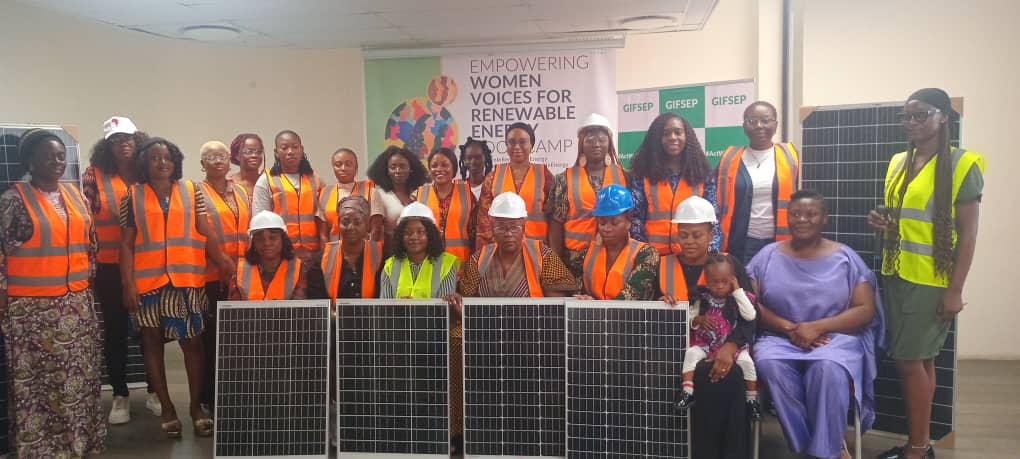…As 85 Million Nigerians Lack Access to Electricity
The Green Innovation and Social Empowerment for Peace (GIFSEP) has taken a significant step towards promoting climate justice by training women in renewable energy.
The Executive Director, Global Initiative for Food Security and Ecosystem Preservation (GIFSEP), Michael Terungwa David, at the Empowering Women Voices for Renewable Energy in Nigeria Media Parley and Exhibition held in Abuja, noted that the initiative aims to empower women with the skills and knowledge necessary to drive sustainable development and address the impacts of climate change.
David informed that Nigeria stands at a crossroads as the country’s dependence on oil, gas, and coal, particularly in the Niger Delta and North Central regions, continues to fuel greenhouse gas emissions, air and water pollution, and severe environmental degradation.
“Gas flaring and fossil fuel combustion release significant amounts of methane and carbon dioxide, driving both climate change and environmental injustice in host communities.
“For decades, the petroleum industry has caused untold damage to the environment and to the lives and livelihoods of local people, especially women, who bear the brunt of poverty, health risks, and loss of livelihoods. Meanwhile, despite being Africa’s largest economy, over 85 million Nigerians, more than 40% of the population, still lack access to electricity.”
David noted that this persistent energy poverty stifles economic development, worsens inequality, and keeps millions trapped in cycles of hardship.
To curb the menace, David stated that Nigeria is blessed with abundant renewable energy resources, especially solar energy, with an average annual solar irradiation of 1,600-2,200 kWh/m².
“This potential can provide clean, affordable, and reliable power for homes, schools, clinics, and small businesses and transform the lives of millions. However, progress remains slow, hindered by weak implementation, policy inconsistency, and a growing skills gap in the renewable energy sector.
The programme supported by Social Change Nest and UMI Fund trained women and girls from fossil fuel-impacted communities to become solar technicians and clean energy advocates.
“Through hands-on sessions and mentorship, participants gained practical skills in solar installation, maintenance, and community energy education, preparing them to return to their communities as both practitioners and change agents for renewable energy adoption.”
As the world prepares for COP30, GIFSEP calls on government agencies, development partners, and the private sector to invest in women-led renewable energy solutions and scale up climate and adaptation finance that directly reaches local communities.
A beneficiary, Julie Ooja Okoh, noted that the training has enabled her to gain ideas on basic technicalities of solar installation and maintenance.
“We came from communities where there is no light. This skill will help us to light our communities because we are stepping down the knowledge we’ve acquired.”















